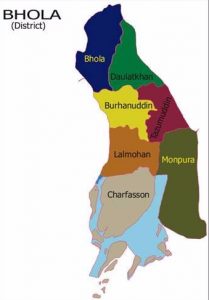South Asians for Human Rights (SAHR), a newly created regional human rights body, on Thursday alleged that the government has been proceeding to implement the coal-fired Rampal power plant project based on arbitrary power, not logic.
“Just a feudal mentality has been working in their minds in implementing the project,” said Professor Abdullah Abu Sayeed, a noted social and environmental activist.Also founder chairman of Bishwa Sahitya Kendra, a non-profit organization that promotes the study of literature, reading habits and progressive ideas, Prof. Sayeed said that it is a serious crime to implement a project ignoring the local people’s lives and livelihood.
Professor Sayeed was speaking at the National Press Club, during the launch of a report based on fact-finding mission on the Rampal power plant project by SAHR.
Addressing the function, bureau member of the SAHR Sultana Kamal said this project will directly hit the local people’s rights to live. Even the ecology, flora and fauna of the Sundarbans forest will be the direct victims of the project.
She said that if the government continues to proceed with the project, it will be the ultimate denial of at least 10 vital obligations of the total 16 commitments of the Sustainable Development Goals (SDG) prepared by the United Nations.
“So, we urge the government to pull out from this location and choose a new one which will not be harmful to the Sundarbans and its ecology and also local community,” Kamal concluded.
The function was also addressed by TIB executive director Dr. Iftekharuzzaman, Professor Shamsul Alam of CAB, Dhaka University professor Dr. Tanjib Uddin, Professor Anu Mohammad and Khushi Kabir.
The SAHR fact finding mission was conducted by Dr. Harun Chowdhury and Sharif Jamil from Bangladesh. External expertise was given by Nityanand Jayaraman and Sagar Dhara from India.
It was said that the objective of the mission was to evaluate the impact of the power plant on the livelihoods of the people and the ecology of the region, examine the legal framework governing its establishment and assess if the proposed plant violates any laws, policies and guidelines that protect the Sundarbans, a world heritage site.
The report highlights that the multifaceted costs to the local people and the irreversible damage to the fragile ecosystem and biodiversity have not been prioritised when proposing the project, and that these costs are much larger compared to the significant benefits from the construction of the power plant, including electricity production, infrastructure development and employment.
The report details on the key human rights concerns and the government response and critiques the environmental impact assessment conducted earlier, and the track record of the National Thermal Power Corporation of India in similar projects.- UNB




